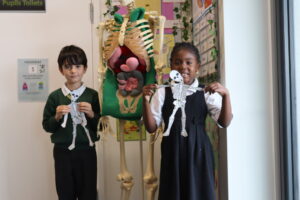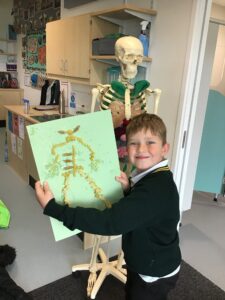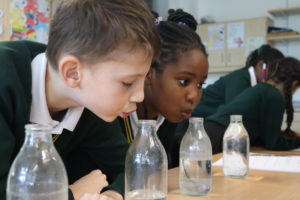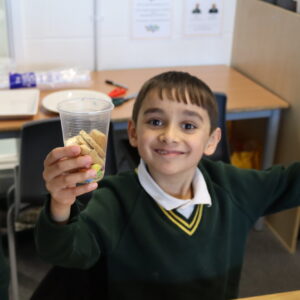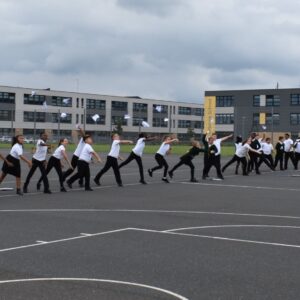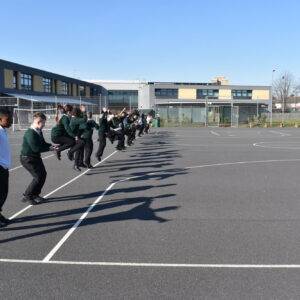Our science curriculum provides our children with opportunities to learn about, ask questions and evaluate aspects of the world around them and to develop knowledge, curiosity and enquiry skills. In addition, we understand the importance of raising aspirations to promote a life-long love for science, to inspire a future generation of scientists.
The science curriculum has been developed so that as our children progress through the key stages, their knowledge, understanding and skill set is continually built upon and embedded. It offers and wide and rich variety of different experiences, including the use of the school grounds, practical and hands-on sessions and focused outreach visits. Our science teaching and learning is planned within the International Primary Curriculum, providing opportunities for cross curricular links.
Science is relevant to most everyday situations and to our children’s character development. Through our teaching of science, we enable our children to enjoy learning about different science concepts and using this to support their understanding of their world now and how they may mould the future.
Our curriculum ensures that all children:
- Have opportunities to develop their scientific knowledge and understanding within the key disciplines of biology, chemistry and physics
- Gain hands on, practical experiences and develop a respect for the equipment that they are using, enabling them to answer scientific questions about the world around them
- Develop a broad and rich scientific vocabulary which is built upon as they progress through the school
- Build a love for science which they share with their peers, supporting adults and family
Early Years Foundation Stage
Our EYFS science education is designed to introduce our young children to a range of ideas and practices related to the natural world around them. Enquiry based play is key to the science in our EYFS curriculum and through this, our children will leave early years as question askers, good thinkers and naturally curious.
Key Stage One
The main focus of science teaching in Key Stage One is to ensure that children have opportunities to be curious. Children will have hands on practical experiences, observing the phenomena and looking closely at the natural and human-constructed world around them. The children’s questioning skills are developed to ensure they have the skills needed to ask questions and be able to answer them using their working scientifically skill set, including observing over time, pattern seeking, grouping and classifying, carrying out simple tests and finding out things using secondary sources of information. The main areas of science that children will be exposed to are plants, animals including humans, materials, living things and habitats, and seasons. Children use science specific vocabulary in line with their reading age at Key Stage One.
Lower Key Stage Two
At the next stage of science teaching, children are encouraged to broaden their view of the world around them. Through discussion, testing and developing ideas, children are beginning to understand functions, link different concepts and build relationships between pieces of knowledge. Utilising their skill set developed in Key Stage One, children are now encouraged to ask their own questions and determine the best way of answering them. Children are supported in drawing conclusions from their results, both verbally and written, and are able to present their findings with using a wider science vocabulary with confidence. Children will be able to explore different concepts within animals including humans, rocks, electricity, light, sound, plants, living things and habitats and states of matter.
Upper Key Stage Two
In the final stage of their primary science career, children now discover and ask questions about more abstract science concepts. They use their working scientifically skill set to answer their questions, allowing them to analyse functions, concepts and relationships more systematically. They use their knowledge to understand the world around them at a more complex level and are beginning to understand that this knowledge can be used to change and impact the future.

